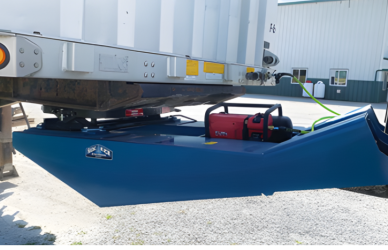As spring blossoms, so do seasonal allergies. For truck drivers spending long hours on the road, battling allergies can be a daunting task. The sneezing, itching, and congestion can make driving uncomfortable and potentially hazardous. However, with some proactive measures and lifestyle adjustments, you can navigate through allergy season with ease. In this blog, we’ll explore effective strategies for truck drivers to beat spring allergies and ensure a smooth journey on the road.
- Know Your Triggers: Understanding what triggers your allergies is the first step in managing them effectively. Pollen from trees, grass, and weeds is a common culprit during spring. Keep track of your symptoms and note any patterns to identify your specific triggers. This knowledge will help you take targeted steps to minimize exposure.
- Keep Your Truck Clean: Your truck cabin can become a haven for allergens if not properly maintained. Regularly clean and vacuum the interior to remove dust, pollen, and other allergens that may have accumulated. Pay attention to commonly overlooked areas such as air vents, upholstery, and floor mats. Consider using allergen-proof covers for your bedding to create a more allergy-friendly environment.
- Filter the Air: Invest in high-quality air filters for your truck’s HVAC system to trap airborne allergens and improve air quality inside the cabin. Replace the filters according to the manufacturer’s recommendations to ensure optimal performance. Additionally, consider using portable air purifiers equipped with HEPA filters to further reduce allergens in confined spaces.
- Monitor Pollen Levels: Stay informed about pollen forecasts in the areas you’ll be traveling through. Many weather websites and apps provide pollen count updates for specific regions. Plan your routes accordingly to avoid areas with high pollen levels whenever possible. If driving through pollen-heavy areas is unavoidable, take extra precautions to minimize exposure.
- Practice Good Hygiene: Maintaining good hygiene habits can help prevent allergens from exacerbating your symptoms. Wash your hands frequently, especially after being outdoors, to remove pollen particles from your skin. Avoid rubbing your eyes or touching your face with dirty hands, as this can introduce allergens into your system and worsen symptoms.
- Use Nasal Irrigation: Nasal irrigation with saline solution is an effective way to flush out allergens from your nasal passages and relieve congestion. Consider carrying a portable nasal saline spray, Mucinex’s Sinus Max, which has recently been going viral for its effectiveness, or a Neti pot with you on the road for convenient use. Use saline irrigation regularly, particularly after spending time outdoors, to keep your nasal passages clear and reduce allergy symptoms.
- Manage Allergy Medications: Consult with your healthcare provider to determine the most suitable allergy medications for your needs. Keep a sufficient supply of prescribed or over-the-counter allergy medications on hand, including antihistamines, nasal sprays, and decongestants. Take medications as directed and be consistent with your treatment regimen to effectively manage symptoms throughout allergy season.
Spring allergies may pose challenges for truck drivers, but with proactive measures and diligence, you can minimize their impact and enjoy a smoother journey on the road. By understanding your triggers, maintaining a clean environment, monitoring pollen levels, practicing good hygiene, using nasal irrigation, and managing allergy medications, you can effectively beat spring allergies and focus on what matters most – safe and enjoyable travels.











